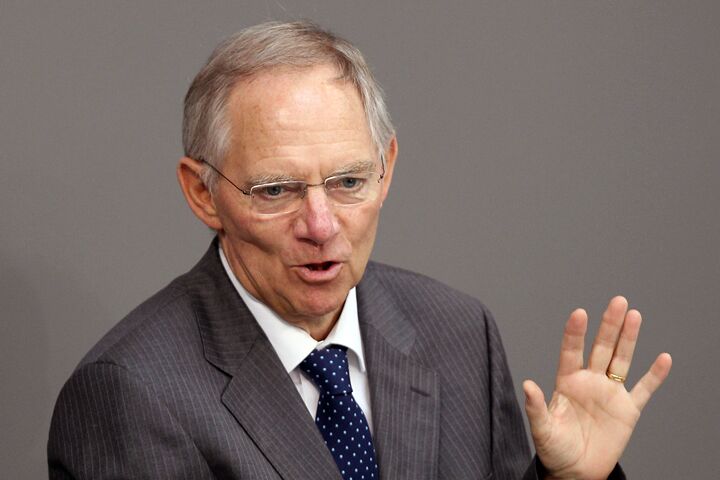
The Clash of the Titans
On Monday, Berlin rejected U.S. calls for G-20 nations to focus on growth rather than curbing debts, setting the stage for an atmosphere of strife at this coming weekend’s Group of 20 summit in Toronto.
In a June 16 letter, President Barack Obama had urged his G-20 counterparts to maintain whatever stimulus programs their governments could finance.
“We must be flexible in adjusting the pace of consolidation and learn from the consequential mistakes of the past when stimulus was too quickly withdrawn and resulted in renewed economic hardships and recession,” he wrote.
The letter was widely regarded as a criticism of Germany and its planned austerity measures, which foresee $107 billion in spending cuts between 2011 and 2014.
German Finance Minister Wolfgang Schäuble rebuffed Obama’s remarks on Monday, saying, “Nobody can seriously dispute that excessive public debts, not only in Europe, are one of the main causes of this crisis. That’s why they have to be reduced.”
Schäuble continued, saying that at the summit, Germany “will face up to the international debate,” he believes “with a great deal of self-confidence.”
German Chancellor Angela Merkel said that she also anticipates a climate of conflict at the June 26-27 meeting because of pressure from the U.S. to spend in order to bolster growth while she sees “no alternative” to reducing deficits.
Merkel said that European G-20 members will work to make deficit reduction a central focus at the summit.
“We will talk about when we’ll switch from the phase of economic stimulus programs toward lasting budget consolidation,” Merkel said. “In the opinion of Europe’s participants, and especially Germany, this is urgently necessary.”
The wording of her comments illuminates Germany’s strengthening position as the kingpin of Europe, which will further solidify as Berlin sets the fiscal agenda for the European G-20 members.
Berlin’s rejection of Washington’s stance showcases a broadening economic-policy divide between Europe and the U.S. Gone are the days when Washington could set an agenda and lead the world in adhering to it. And the summit will display the deep-rooted differences in the way America and Germany are approaching the financial crisis.
In response to President Obama’s calls for the G-20 to reaffirm its “unity of purpose to provide the policy support necessary to keep economic growth strong,” Merkel said that “it’s not about growth at any price, it’s about sustainable” growth.
The EU, with Berlin at its helm, will clash with U.S. policymakers at the upcoming summit and beyond, as turbulence between these powers intensifies. To understand more about Germany’s long-term agenda of bringing an end to U.S. hegemony, read Germany and the Holy Roman Empire.
